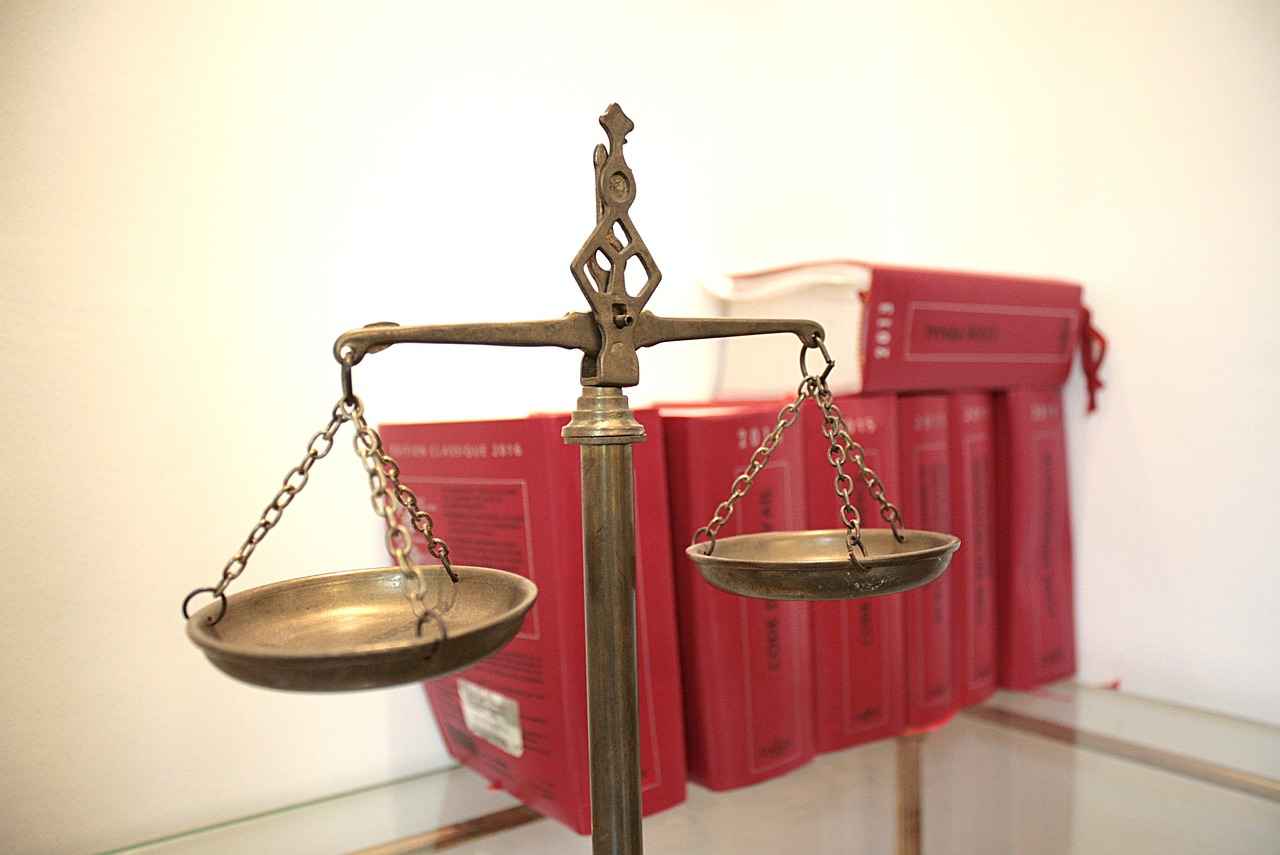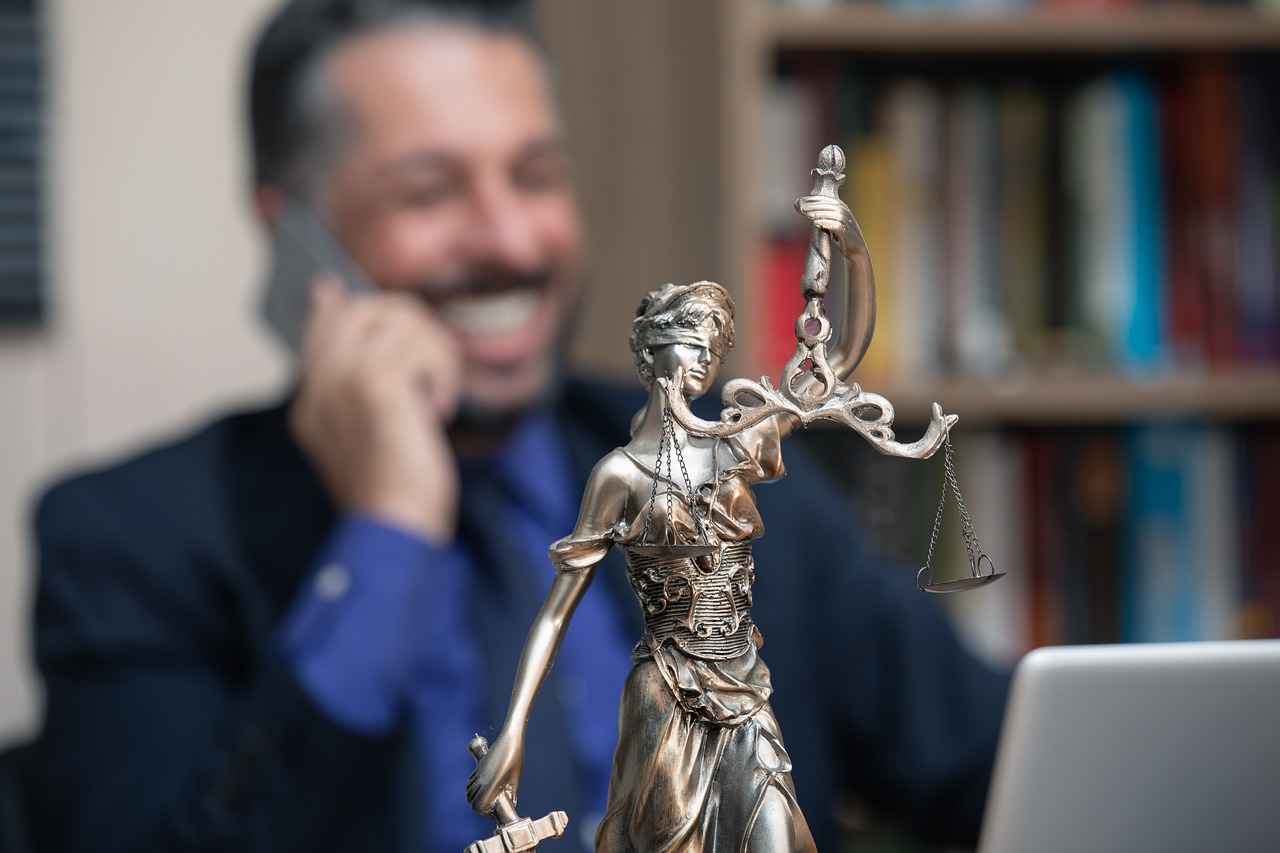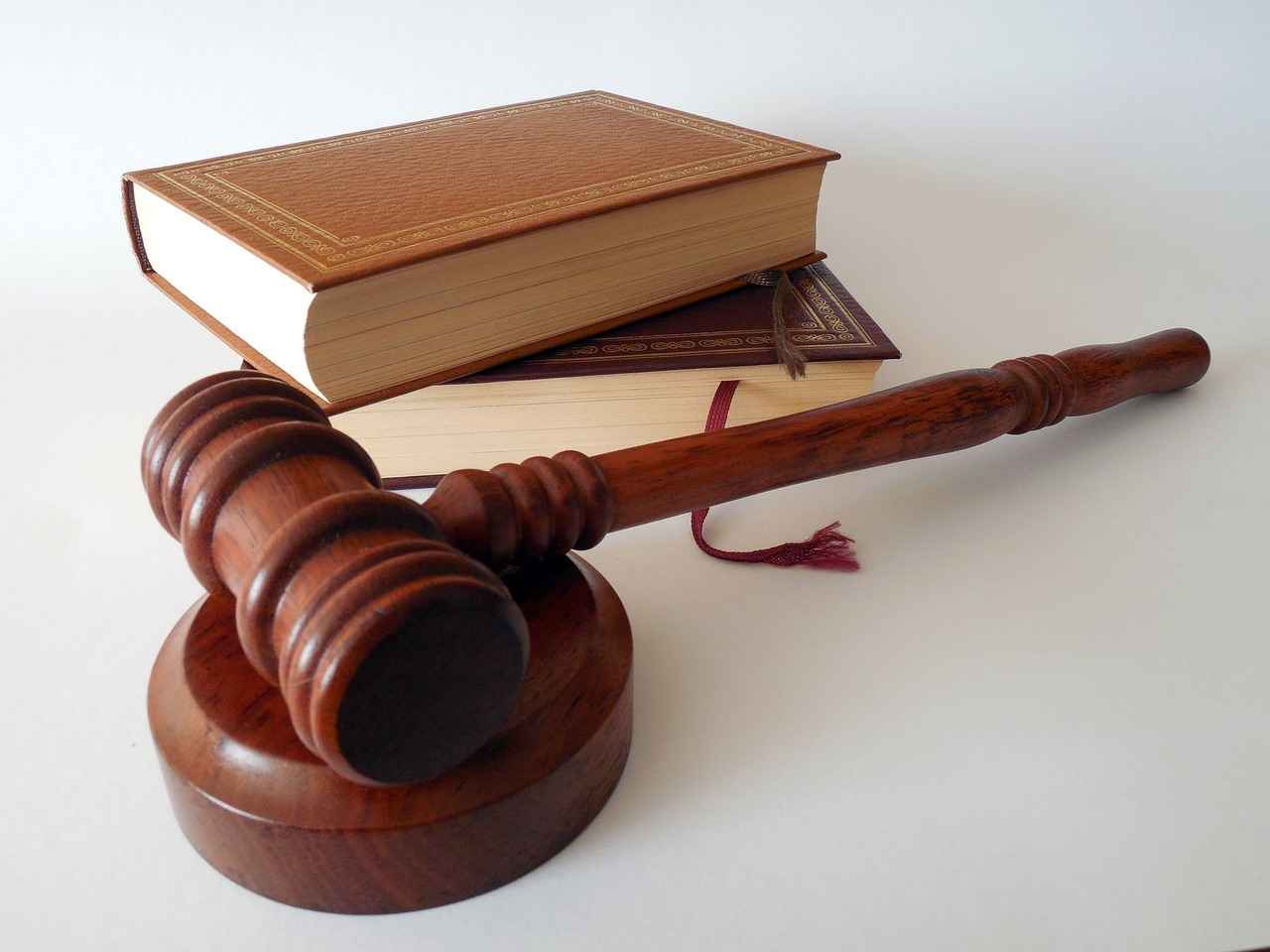This article explores the most common types of legal cases in the U.S. and offers expert guidance on finding qualified attorneys in Louisville, Kentucky, and beyond.
The U.S. legal system encompasses a wide range of cases, each requiring specialized knowledge and expertise. From personal injury to criminal defense and family law, understanding these categories is crucial for anyone seeking legal assistance. Here, we will delve into the most common types of legal cases and provide practical insights on how to find the right attorney.
Personal injury cases arise when individuals suffer harm due to another’s negligence. These can include car accidents, slip and falls, and workplace injuries. To find a qualified personal injury attorney, look for someone with a proven track record in similar cases, strong negotiation skills, and a deep understanding of state laws. Online platforms like Avvo and FindLaw provide ratings and reviews to help you assess potential candidates.
Medical malpractice claims involve negligence by healthcare providers, which can lead to serious consequences. When seeking an attorney for such cases, prioritize those with specific expertise in medical malpractice law. Check their credentials, including any specialized certifications and past case outcomes. Websites like Super Lawyers can help identify top-rated attorneys in this field.
Breach of contract disputes occur when one party fails to fulfill their contractual obligations. To navigate these complexities, find a lawyer skilled in contract law. Look for attorneys who have successfully handled similar disputes and who offer a clear communication style. Resources like Lawyers.com can assist in your search.
Property disputes can involve boundary issues, easements, or landlord-tenant conflicts. An attorney with a strong background in real estate law can help resolve these matters effectively. Seek referrals from local real estate agents or use online directories to find specialists in your area.
Landlord-tenant disputes often arise over lease agreements and property conditions. Finding a lawyer familiar with housing laws is essential for fair representation. Look for attorneys who have experience in local housing courts and understand the specifics of tenant rights and landlord obligations.
Defamation cases involve false statements that harm a person’s reputation. A skilled attorney can help navigate the complexities of libel and slander laws to protect your rights. When searching for a defamation attorney, ensure they have a solid understanding of media law and past experience handling similar cases.
Employment disputes can range from wrongful termination to discrimination claims. An attorney experienced in employment law can provide guidance on navigating these sensitive issues. Look for lawyers who are well-versed in both state and federal employment regulations and who have a history of representing employees successfully.
Product liability cases arise when consumers are harmed by defective products. Finding a lawyer with experience in this area is crucial to ensure you receive the compensation you deserve. Seek attorneys who have a background in consumer protection and have successfully litigated product liability cases.
Wrongful death claims seek justice for families who have lost loved ones due to negligence. An attorney specializing in this area can offer compassionate support and legal expertise. When looking for a wrongful death lawyer, consider their experience with similar cases and their ability to handle sensitive situations with care.
Class action lawsuits allow groups of individuals to sue for collective harm. Identifying a lawyer with experience in class actions is vital for effective representation. Look for attorneys who have successfully managed class action suits and have the resources to handle large-scale litigation.
Criminal defense cases cover a wide range of offenses, including theft and drug charges. A seasoned criminal defense attorney can provide the necessary expertise to navigate the legal system effectively. When searching for a criminal defense lawyer, look for those with a strong track record in defending similar charges and who are familiar with local courts.
Family law matters, including divorce and child custody, require specialized knowledge. Finding an attorney experienced in family law can help you navigate these emotionally charged situations. Seek lawyers who are empathetic yet assertive, and who have a successful history in family court.
Immigration and bankruptcy cases involve complex legal processes. An attorney with expertise in these areas can guide you through the intricacies of U.S. immigration law and bankruptcy proceedings. Look for lawyers who have a strong understanding of the latest legal changes and who can offer personalized solutions.

Personal Injury Cases
Personal injury cases are a significant area of law that arises when individuals suffer harm due to the negligence or wrongful actions of another party. These cases can encompass a wide range of incidents, including car accidents, slip and falls, workplace injuries, and more. Understanding the intricacies of personal injury law is crucial for anyone seeking compensation for their injuries.
When pursuing a personal injury claim, it is essential to establish that the other party was negligent. This typically involves proving that they had a duty of care to the injured party, breached that duty, and caused harm as a direct result of their actions. The burden of proof lies with the injured party, making it vital to have an experienced attorney who specializes in personal injury law.
Finding the right attorney can significantly impact the outcome of your case. Here are some practical steps to help you identify a qualified personal injury lawyer:
- Research and Referrals: Start by asking friends, family, or colleagues for recommendations. Personal referrals can provide insights into an attorney’s reputation and effectiveness.
- Online Platforms: Utilize legal directories such as Avvo, Martindale-Hubbell, or FindLaw to search for attorneys in your area. These platforms often include reviews and ratings from previous clients.
- Specialization: Look for attorneys who specialize in personal injury law. Their experience in handling similar cases will enhance your chances of a favorable outcome.
- Consultation: Most personal injury attorneys offer free initial consultations. Use this opportunity to discuss your case and gauge their expertise and approach.
- Credentials: Check their credentials, including education, licenses, and any professional affiliations. Membership in organizations such as the American Bar Association or state trial lawyer associations can be a good sign.
- Contingency Fees: Many personal injury lawyers work on a contingency fee basis, meaning they only get paid if you win your case. Ensure you understand their fee structure before signing any agreements.
- Red Flags: Be cautious of attorneys who guarantee results or pressure you into signing contracts quickly. A reputable lawyer will provide honest assessments and allow you time to make informed decisions.
In major metropolitan areas like New York City, Los Angeles, and Chicago, the competition among personal injury attorneys can be fierce. Therefore, taking the time to thoroughly vet potential lawyers is crucial. Look for those with a proven track record of success in personal injury cases similar to yours.
Additionally, consider the attorney’s communication style and availability. You want someone who is responsive and willing to keep you informed throughout the legal process. Personal injury cases can take time to resolve, so having a supportive and communicative attorney can make a significant difference in your experience.
Ultimately, the goal of pursuing a personal injury claim is to secure compensation for medical expenses, lost wages, pain and suffering, and other damages. With the right legal representation, you can navigate the complexities of the legal system and work towards achieving a fair resolution for your case.

Medical Malpractice Claims
are a serious concern in the healthcare industry, representing instances where healthcare providers fail to meet the standard of care, resulting in harm to patients. These claims can encompass a wide range of situations, including surgical errors, misdiagnoses, medication mistakes, and inadequate follow-up care. The complexities involved in these cases necessitate the expertise of a specialized attorney who understands the medical and legal intricacies.
When seeking legal representation for a medical malpractice claim, it is crucial to consider several factors to ensure you find the right attorney. Here are some practical tips:
- Look for Specialization: Choose an attorney who specializes in medical malpractice. This area of law requires specific knowledge of both medical practices and legal standards. An attorney with a proven track record in this field will be more adept at navigating the complexities of your case.
- Check Credentials: Verify the attorney’s credentials, including their education, bar association membership, and any special certifications in medical malpractice law. This information can often be found on their law firm’s website or legal directories.
- Experience Matters: An attorney with years of experience in handling medical malpractice cases will likely have a better understanding of how to build a strong case. Look for those who have successfully represented clients in similar situations.
- Ask About Past Cases: Inquire about the attorney’s past case outcomes. A successful history with settlements or verdicts in medical malpractice cases can be a strong indicator of their capability.
- Consult Reviews and Testimonials: Online reviews and testimonials can provide insight into the attorney’s reputation. Look for feedback from former clients regarding their experiences and the results achieved.
- Initial Consultation: Many lawyers offer free consultations. Use this opportunity to discuss your case and assess whether you feel comfortable with their approach. Pay attention to how they communicate and whether they seem genuinely interested in helping you.
- Fee Structure: Understand the attorney’s fee structure. Most medical malpractice attorneys work on a contingency fee basis, meaning they only get paid if you win your case. Ensure you are clear on how fees will be handled to avoid any surprises later on.
It’s also essential to recognize some red flags when selecting a medical malpractice attorney. Be cautious of lawyers who guarantee specific outcomes, as no attorney can predict the results of a case with certainty. Additionally, if an attorney seems rushed or dismissive during your consultation, it may be a sign that they do not prioritize client relationships.
In major metropolitan areas like New York City, Los Angeles, and Chicago, the competition among attorneys can be fierce. Utilize online legal directories such as Avvo or FindLaw to browse profiles and compare attorneys. You can also seek recommendations from friends, family, or other legal professionals who may have insights into reputable attorneys in your area.
In summary, pursuing a medical malpractice claim is a significant endeavor that requires careful consideration when selecting an attorney. By focusing on specialization, experience, and client feedback, you can increase your chances of finding a qualified legal professional who can effectively advocate for your rights.

Breach of Contract Disputes
are a common legal issue that arises when one party fails to meet their obligations as outlined in a contract. This situation can lead to significant financial and operational consequences for the aggrieved party. Understanding the intricacies of breach of contract disputes is essential, particularly in a complex legal landscape. Engaging a lawyer who specializes in contract law can provide the necessary expertise to navigate these challenges effectively.
When dealing with breach of contract cases, it is vital to first understand the types of breaches that can occur. A material breach is a significant violation that affects the contract’s overall purpose, while a minor breach is a less severe violation that does not fundamentally undermine the contract. Identifying the nature of the breach is crucial in determining the appropriate legal recourse.
To find a qualified attorney for breach of contract disputes, consider the following steps:
- Research and Referrals: Start by asking for recommendations from friends, family, or business associates who have had similar legal issues. Online platforms like Avvo and FindLaw can also provide insights into local attorneys’ qualifications and reviews.
- Check Credentials: Look for attorneys with specific experience in contract law. Verify their educational background, years of practice, and any specialized certifications related to contract disputes.
- Consultation: Schedule initial consultations with potential lawyers. This meeting can help you gauge their understanding of your case and their approach to resolving it.
- Evaluate Communication: Choose an attorney who communicates clearly and promptly. Effective communication is essential for a successful attorney-client relationship.
- Assess Fees: Discuss the attorney’s fee structure upfront. Some may charge hourly rates, while others may work on a contingency basis. Ensure you understand all potential costs involved.
It’s important to be aware of red flags when hiring a lawyer. Avoid attorneys who make unrealistic promises or guarantees regarding the outcome of your case. Additionally, be cautious of those who seem more interested in their fees than in understanding your situation.
Once you’ve selected an attorney, they will guide you through the legal process, which may include gathering evidence, negotiating settlements, or, if necessary, pursuing litigation. A skilled lawyer will help you understand your rights and obligations under the contract, as well as the potential remedies available, such as damages or specific performance.
In conclusion, navigating breach of contract disputes can be complex, but with the right legal representation, you can effectively protect your interests and seek justice. Always remember to conduct thorough research and choose an attorney who is not only qualified but also aligns with your specific legal needs.

Property Disputes
can arise from various issues related to real estate, and they often lead to significant legal challenges for those involved. Common types of property disputes include boundary issues, easements, and landlord-tenant conflicts. Understanding these disputes is crucial for anyone dealing with property ownership or rental agreements, as the implications can be both financially and emotionally taxing.
Boundary disputes typically occur when two property owners disagree on the exact location of their property lines. This can lead to conflicts over fences, trees, or even structures that may encroach on a neighbor’s land. To resolve these issues effectively, it is vital to consult an attorney with a strong background in real estate law. They can assist in determining the legal boundaries through surveys and property deeds, and may even help negotiate a settlement to avoid costly litigation.
Easements represent another common source of property disputes. An easement allows one party to use a portion of another party’s property for a specific purpose, such as accessing a road or utility lines. Disagreements can arise regarding the scope of the easement, its maintenance, or even its existence. An experienced attorney can help clarify the terms of the easement and protect your rights, ensuring that any agreements are legally binding and enforceable.
Landlord-tenant conflicts are prevalent in urban areas where rental properties are abundant. These disputes may involve issues such as lease agreements, property conditions, or the return of security deposits. Tenants may feel their rights are violated if landlords fail to maintain safe living conditions or do not adhere to the terms of the lease. Conversely, landlords may face challenges when tenants do not pay rent or cause damage to the property. In such cases, a knowledgeable attorney can guide both parties through the legal process, ensuring that all actions comply with housing laws.
When searching for a qualified attorney to handle property disputes, consider the following steps:
- Research Local Attorneys: Start by searching for attorneys specializing in real estate law in your area. Websites like Avvo or FindLaw can provide valuable information about lawyers’ backgrounds and reviews.
- Check Credentials: Look for attorneys with specific experience in property disputes. Verify their education, years of practice, and any relevant certifications.
- Consultations: Many attorneys offer free initial consultations. Use this opportunity to discuss your case and assess their expertise and approach.
- Ask for Referrals: Seek recommendations from friends, family, or colleagues who have dealt with similar issues. Personal experiences can lead you to competent legal professionals.
- Evaluate Communication: Effective communication is key in legal matters. Choose an attorney who listens to your concerns and explains legal concepts clearly.
It is also essential to be aware of red flags when hiring a lawyer. Avoid attorneys who guarantee specific outcomes, as this can indicate a lack of integrity. Be cautious of those who are unresponsive to your inquiries or who do not provide clear billing practices. Trust your instincts—if something feels off during your interactions, it may be best to continue your search.
In summary, property disputes can be complex and multifaceted, but with the right legal representation, they can be navigated effectively. Whether dealing with boundary issues, easements, or landlord-tenant conflicts, it is crucial to seek the guidance of an attorney experienced in real estate law. By conducting thorough research and following best practices for hiring legal professionals, individuals can protect their property rights and achieve favorable outcomes in their disputes.

Landlord-Tenant Disputes
Landlord-tenant disputes are a common issue that can arise for various reasons, including disagreements over lease terms, property maintenance, and tenant rights. These disputes can be stressful and complicated, making it essential for both landlords and tenants to understand their rights and obligations under the law.
When facing a landlord-tenant dispute, it is crucial to seek legal representation from an attorney who specializes in housing laws. A knowledgeable lawyer can provide invaluable assistance by interpreting lease agreements, representing clients in court, and negotiating settlements. Here are some key points to consider when navigating landlord-tenant disputes:
- Understand the Lease Agreement: Before entering into any dispute, both parties should thoroughly understand the lease agreement. This document outlines the responsibilities of each party, including rent payment, maintenance duties, and rules regarding property use.
- Document Everything: Keeping detailed records of all communications, repairs, and payments can be beneficial in resolving disputes. This documentation can serve as evidence if the case escalates to legal proceedings.
- Know Your Rights: Tenants have specific rights under local and federal housing laws, including the right to a habitable living environment. Landlords also have rights, such as the ability to collect rent and terminate leases under certain conditions. Familiarizing yourself with these rights can help both parties navigate disputes more effectively.
- Seek Mediation: Before resorting to litigation, consider mediation as a way to resolve disputes amicably. Mediation involves a neutral third party who can help facilitate a conversation and find a mutually acceptable solution.
- Find a Qualified Lawyer: When searching for an attorney, look for someone with experience in landlord-tenant law. Check their credentials, read reviews, and ask for referrals from trusted sources. A good lawyer will not only have legal expertise but also a strong understanding of local housing laws.
In major cities like New York, Los Angeles, and Chicago, where the rental market can be particularly competitive, having a skilled attorney can make a significant difference in the outcome of a dispute. Utilize online platforms such as Avvo, FindLaw, or local bar association directories to find qualified lawyers in your area. Look for attorneys who have received positive client feedback and possess a track record of successfully handling landlord-tenant cases.
Additionally, be wary of red flags when hiring a lawyer. Avoid attorneys who make unrealistic promises about the outcome of your case or those who do not provide clear communication regarding their fees and processes. A reputable attorney will be transparent about their approach and provide a realistic assessment of your case.
In conclusion, landlord-tenant disputes can be complex and emotionally charged. However, with the right legal representation and a clear understanding of your rights, you can navigate these challenges effectively. Whether you are a landlord seeking to enforce a lease or a tenant fighting for your rights, having an experienced attorney by your side can help ensure that your interests are protected.

Defamation Cases (Libel/Slander)
Defamation cases, encompassing both libel and slander, represent a significant area of legal concern, particularly in today’s digital age where information spreads rapidly. These cases arise when an individual or entity makes false statements that damage another person’s reputation. The implications of such statements can be profound, affecting personal relationships, career opportunities, and overall public perception. Understanding the nuances of defamation law is crucial for anyone considering legal action or defending against such claims.
Defamation is categorized into two forms: libel, which refers to written statements, and slander, which pertains to spoken statements. Both forms of defamation require the plaintiff to prove that the statement was not only false but also made with a certain level of fault, depending on whether the plaintiff is a private individual or a public figure. This distinction is vital, as public figures must demonstrate that the statement was made with actual malice—meaning the defendant knew the statement was false or acted with reckless disregard for the truth.
When pursuing a defamation case, it’s essential to gather evidence supporting your claims. This may include witness statements, documentation of the false statements, and evidence of the harm caused, such as loss of employment or mental distress. A skilled attorney specializing in defamation law can assist in compiling this evidence and navigating the complexities of the legal process.
Finding the right attorney is critical in defamation cases. Here are some strategies to ensure you choose a qualified legal professional:
- Research Specialization: Look for attorneys who specialize in defamation and have a proven track record in handling similar cases. Their experience will provide valuable insights into the nuances of your situation.
- Check Credentials: Verify the attorney’s credentials, including their education, years of experience, and any relevant certifications. Membership in professional organizations can also indicate a commitment to staying current in the field.
- Read Reviews: Online reviews and testimonials can provide insight into the attorney’s reputation and the experiences of past clients. Look for patterns in feedback regarding communication, case outcomes, and overall satisfaction.
- Consultation: Many attorneys offer free initial consultations. Use this opportunity to discuss your case, gauge their understanding of defamation law, and assess their approach to your situation.
- Ask Questions: Inquire about their experience with libel and slander cases, their strategy for handling your case, and their fee structure. Understanding how they plan to advocate for you is crucial.
Be wary of red flags when selecting an attorney. These may include:
- Overpromising Results: If an attorney guarantees a specific outcome, consider it a red flag. Legal cases are inherently unpredictable, and responsible attorneys will provide realistic expectations.
- Lack of Communication: If an attorney is difficult to reach or does not respond promptly to your inquiries, it may indicate potential issues in their practice.
- High Fees Without Justification: While experienced attorneys may command higher fees, ensure that their pricing structure is transparent and justifiable based on their experience and the complexity of your case.
In summary, defamation cases require a nuanced understanding of the law and a strategic approach to litigation. Partnering with a qualified attorney who specializes in this area can significantly improve your chances of a favorable outcome. By conducting thorough research, asking the right questions, and being aware of potential red flags, you can find a legal professional who will advocate effectively for your rights and reputation.

Employment Disputes
encompass a wide range of issues that can arise in the workplace, from wrongful termination to discrimination claims. These disputes can have significant implications for both employees and employers, making it essential to understand the complexities involved. If you find yourself facing an employment-related legal issue, seeking the counsel of an attorney experienced in employment law can provide invaluable guidance in navigating these sensitive matters.
One of the most common types of employment disputes is wrongful termination, which occurs when an employee is fired for illegal reasons, such as retaliation for whistleblowing or discrimination based on race, gender, or age. Employees in these situations may have legal recourse, and an attorney can help assess the merits of the case and determine the best course of action.
Another prevalent issue is discrimination in the workplace, which can manifest in various forms, including hiring practices, promotions, and workplace treatment. Discrimination claims can be complex and often require a thorough understanding of both state and federal laws. An attorney specializing in employment law can help gather evidence, file complaints with the appropriate agencies, and represent individuals in court if necessary.
Additionally, harassment, whether sexual or otherwise, is another serious concern that can lead to employment disputes. Victims of harassment may feel isolated and unsure of how to proceed. An experienced attorney can provide support and guidance, helping victims understand their rights and the legal options available to them.
When searching for a qualified employment attorney, consider the following tips:
- Research Credentials: Look for attorneys with specific experience in employment law. Verify their education, years of practice, and any relevant certifications.
- Read Reviews: Online reviews and testimonials can provide insight into an attorney’s reputation and success rate in handling employment disputes.
- Consultations: Many attorneys offer free initial consultations. Use this opportunity to ask questions about their experience with cases similar to yours and their approach to handling disputes.
- Check Bar Association Listings: State and local bar associations often have directories of licensed attorneys, which can help you find qualified professionals in your area.
- Assess Communication: Choose an attorney who communicates clearly and is responsive to your concerns. Good communication is vital for a successful attorney-client relationship.
Furthermore, be aware of potential red flags when hiring an attorney:
- Lack of Experience: Be cautious of attorneys who do not specialize in employment law or have limited experience in this area.
- High Pressure Tactics: If an attorney pressures you to sign a contract or make decisions quickly, consider looking for someone who respects your need for time to think.
- Unclear Fee Structures: Ensure that the attorney provides a clear explanation of their fee structure. Hidden fees can lead to misunderstandings and financial strain.
In summary, employment disputes can be challenging and emotionally taxing. Understanding the types of issues that can arise and knowing how to find a qualified attorney can make a significant difference in the outcome of your case. With the right legal representation, you can navigate the complexities of employment law and work towards a resolution that protects your rights and interests.

Product Liability Cases
are critical legal matters that arise when consumers suffer injuries or damages due to defective or unsafe products. These cases often involve complex legal principles and require a thorough understanding of both consumer rights and product safety regulations. In the United States, product liability law typically falls under three main categories: defective design, defective manufacturing, and failure to provide adequate warnings or instructions.
When pursuing a product liability claim, it is essential to demonstrate that the product was indeed defective and that the defect directly caused the injury. This can involve gathering evidence such as product testing results, expert testimonies, and documentation of the injuries sustained. Given the intricacies involved, finding an experienced attorney who specializes in product liability is crucial for ensuring that you receive the compensation you deserve.
Here are some practical steps to consider when searching for a qualified product liability lawyer:
- Research their expertise: Look for attorneys who have a proven track record in handling product liability cases. Review their case history and outcomes to gauge their success rate.
- Check credentials: Ensure that the lawyer is licensed to practice in your state and has relevant certifications or memberships in professional organizations, such as the American Association for Justice.
- Read client reviews: Online platforms like Avvo, Martindale-Hubbell, and Google Reviews can provide insight into the experiences of previous clients, helping you assess the lawyer’s reputation.
- Schedule consultations: Many attorneys offer free initial consultations. Use this opportunity to discuss your case, ask about their experience, and understand their approach to handling product liability claims.
- Evaluate communication skills: A good attorney should communicate clearly and effectively, keeping you informed throughout the legal process.
Additionally, be cautious of red flags that may indicate a less-than-reputable attorney. Avoid lawyers who:
- Promise guaranteed outcomes: No attorney can guarantee the results of a case, especially in the unpredictable realm of product liability.
- Pressure you into signing contracts: Take your time to review any agreements and ensure you fully understand the terms before committing.
- Have vague fee structures: Ensure that you have a clear understanding of how the attorney charges for their services, whether it’s a contingency fee or hourly rate.
In summary, product liability cases can be complex and challenging to navigate without the proper legal support. By following the steps outlined above and remaining vigilant for potential red flags, you can find a qualified attorney who will advocate for your rights and work diligently to secure the compensation you deserve.

Wrongful Death Claims
When a loved one dies due to the negligence or wrongful actions of another, the emotional toll on the family can be overwhelming. In such tragic circumstances, serve as a crucial avenue for seeking justice and compensation. These claims are designed to hold responsible parties accountable while providing financial relief to grieving families.
Understanding Wrongful Death Claims
Wrongful death claims arise when an individual dies as a result of another party’s negligence, misconduct, or wrongful act. This can encompass a wide range of incidents, including car accidents, medical malpractice, workplace accidents, and even criminal acts. The legal framework for these claims varies by state, but the core principle remains the same: to compensate the deceased’s family for their loss.
Who Can File a Wrongful Death Claim?
- Immediate family members such as spouses, children, and parents are typically entitled to file a claim.
- In some states, extended family members or dependents may also have the right to pursue a claim.
Components of a Wrongful Death Claim
To successfully establish a wrongful death claim, several key components must be demonstrated:
- Negligence or Wrongful Act: It must be proven that the responsible party acted negligently or wrongfully, leading to the death.
- Causation: There must be a direct link between the negligent act and the death of the individual.
- Damages: The surviving family members must show that they have suffered damages as a result of the loss, including emotional distress, loss of income, and funeral expenses.
Finding the Right Attorney for Your Wrongful Death Claim
Choosing the right attorney is crucial for navigating the complexities of a wrongful death claim. Here are some steps to ensure you find a qualified legal professional:
- Specialization: Look for attorneys who specialize in wrongful death and personal injury law. Their expertise will be invaluable in building a strong case.
- Experience: Consider the attorney’s track record with wrongful death cases. An experienced lawyer will understand the nuances of the law and have strategies in place to maximize your compensation.
- Reputation: Research potential attorneys through online reviews, testimonials, and professional ratings. A lawyer with a solid reputation in the community is more likely to provide effective representation.
- Consultation: Schedule initial consultations with multiple attorneys. This allows you to gauge their communication style, approach, and whether you feel comfortable working with them.
Red Flags to Avoid
While searching for a wrongful death attorney, be vigilant for potential red flags:
- Attorneys who promise guaranteed outcomes or overly high settlements should be approached with caution.
- Be wary of lawyers who pressure you to sign contracts quickly or do not provide clear information about their fees and services.
- Inconsistent communication or lack of responsiveness can indicate potential issues down the line.
Conclusion
In the aftermath of a tragic loss, pursuing a wrongful death claim can be a daunting task. However, with the right legal representation, families can seek justice and find some measure of peace. By understanding the components of these claims and taking the time to find a qualified attorney, families can ensure their rights are protected and that they receive the compensation they deserve.

Class Action Lawsuits
Class action lawsuits serve as a powerful legal tool that enables groups of individuals to collectively seek justice for shared grievances. These lawsuits arise when a large number of people suffer similar harm, often due to the actions of a corporation or organization. For instance, if a pharmaceutical company produces a defective drug that causes harm to thousands of users, affected individuals can band together to file a class action suit. This not only streamlines the legal process but also amplifies the impact of their claims.
When pursuing a class action lawsuit, the importance of selecting an attorney with specialized experience in this field cannot be overstated. Class action cases are often complex, involving intricate legal frameworks and extensive documentation. A lawyer who is well-versed in class action litigation will understand the specific requirements for certification, manage the intricate details of the case, and advocate effectively on behalf of the group.
To find a qualified attorney for a class action lawsuit, consider the following steps:
- Research Law Firms: Start by looking for law firms that have a strong track record in class action lawsuits. Many firms will highlight their experience in this area on their websites.
- Check Credentials: Look for attorneys who are members of professional organizations, such as the American Association for Justice, which often indicates a commitment to staying updated on legal trends and practices.
- Read Reviews: Online reviews and testimonials can provide insight into the experiences of other clients. Websites like Avvo and Martindale-Hubbell offer ratings and reviews of attorneys.
- Consultations: Most reputable attorneys will offer initial consultations, often for free. Use this opportunity to gauge their expertise, communication style, and approach to your case.
While searching for a lawyer, be aware of potential red flags. These may include:
- Lack of Experience: Avoid attorneys who do not have specific experience in class action lawsuits, as this can jeopardize the success of your case.
- High Fees Without Clear Justification: Be cautious of lawyers who demand high upfront fees without explaining their billing structure or the value they will provide.
- Poor Communication: An attorney who is unresponsive or fails to communicate effectively may not prioritize your case.
In conclusion, class action lawsuits are a vital means for individuals to seek justice collectively. By thoroughly vetting potential attorneys and ensuring they have the necessary experience and credentials, you can enhance your chances of a successful outcome. Remember, the right legal representation can make all the difference in navigating the complexities of a class action lawsuit.

Criminal Defense Cases
encompass a broad spectrum of offenses, ranging from theft and drug charges to more serious allegations such as murder and white-collar crimes. Navigating the criminal justice system can be daunting, and having a skilled criminal defense attorney by your side is crucial. These professionals not only understand the complexities of the law but also possess the experience necessary to formulate effective defense strategies tailored to each unique case.
When seeking a criminal defense attorney, it is essential to consider their specialization. Different attorneys may focus on various areas of criminal law, such as violent crimes, drug offenses, cybercrime, or domestic violence. This specialization can significantly impact the outcome of your case. For instance, an attorney with extensive experience in handling drug charges will be more adept at identifying potential defenses, negotiating plea bargains, and understanding the nuances of drug laws in your jurisdiction.
In major metropolitan areas such as New York City, Los Angeles, and Chicago, finding the right attorney involves a few key steps:
- Research Online: Utilize platforms like Avvo, FindLaw, and Martindale-Hubbell to read attorney reviews, check their credentials, and assess their experience.
- Seek Recommendations: Personal referrals from friends, family, or colleagues can provide invaluable insights into an attorney’s capabilities and reputation.
- Check Bar Association Listings: Each state has a bar association that can provide information on an attorney’s standing and any disciplinary actions.
During your initial consultation, pay attention to how the attorney communicates. A competent lawyer should be able to explain complex legal concepts in a way that you can understand, ensuring that you feel comfortable and informed throughout the process. Ask about their experience with cases similar to yours and their approach to defense strategies.
Moreover, understanding the potential red flags when hiring a criminal defense attorney is equally important. Be wary of attorneys who:
- Guarantee specific outcomes, as no attorney can predict the results of a case.
- Rush you into making decisions without providing adequate information.
- Have poor communication skills or are unresponsive to your inquiries.
In conclusion, having a knowledgeable and experienced criminal defense attorney is vital for anyone facing criminal charges. By conducting thorough research and asking the right questions, you can find a legal professional who will advocate for your rights and work diligently to achieve the best possible outcome for your case.

Family Law Matters
encompass a wide range of legal issues that affect individuals and families, including divorce, child custody, child support, and adoption. These cases require not only legal expertise but also a deep understanding of the emotional complexities involved. Navigating family law can be particularly challenging, as it often involves sensitive personal matters and significant life changes.
When seeking an attorney for family law matters, it is crucial to find someone who is not only experienced in family law but also empathetic and capable of handling the emotional aspects of these cases. Here are some expert tips to help you find the right family law attorney:
- Research and Referrals: Start by asking friends, family, or colleagues for recommendations. Personal referrals can provide insight into an attorney’s style and effectiveness.
- Check Credentials: Look for attorneys who specialize in family law and have relevant credentials. Membership in professional organizations such as the American Academy of Matrimonial Lawyers can indicate a commitment to the field.
- Initial Consultations: Many attorneys offer free initial consultations. Use this opportunity to discuss your case, gauge the attorney’s expertise, and determine if you feel comfortable with them.
- Review Online Presence: Check online reviews and testimonials on platforms like Avvo, Martindale-Hubbell, or Google Reviews. Pay attention to feedback regarding their communication skills and case outcomes.
- Assess Communication Style: Effective communication is key in family law. Ensure that the attorney listens to your concerns and explains legal concepts in a way that you understand.
- Evaluate Experience: Inquire about the attorney’s experience with cases similar to yours. An attorney familiar with local laws and court procedures can be a significant asset.
- Discuss Fees: Understand the attorney’s fee structure upfront. Some may charge hourly rates, while others may offer flat fees for specific services. Make sure you are comfortable with the financial aspect before proceeding.
In family law, it is essential to have a lawyer who is not only knowledgeable but also understands the emotional stakes involved. Whether you are dealing with a contentious divorce or a complicated custody battle, having the right attorney can make all the difference in achieving a favorable outcome.
Consider the following common family law issues:
- Divorce: The dissolution of marriage can involve asset division, spousal support, and child custody arrangements.
- Child Custody: Determining custody arrangements can be contentious. An attorney can help negotiate a fair agreement that prioritizes the child’s best interests.
- Child Support: Establishing child support obligations is crucial for the financial well-being of children post-divorce.
- Adoption: The adoption process can be complex, requiring legal guidance to ensure all procedures are followed correctly.
- Paternity: Establishing paternity can affect child custody and support issues, making legal assistance important.
- Guardianship: When parents are unable to care for their children, establishing guardianship can be a sensitive legal matter.
Each of these issues requires careful consideration and a tailored approach. When searching for a family law attorney, ensure they have a comprehensive understanding of these areas and can provide you with the support you need during this challenging time.
In conclusion, finding the right attorney for family law matters is essential for navigating the complexities of these emotionally charged situations. By conducting thorough research, checking credentials, and assessing communication styles, you can find a qualified attorney who will advocate for your best interests.

Immigration and Bankruptcy Cases
Immigration and bankruptcy cases present a unique set of challenges within the U.S. legal system. Navigating these complex legal processes requires not only a deep understanding of the law but also a strategic approach to ensure your rights and interests are protected. An attorney with expertise in **immigration law** and **bankruptcy proceedings** can provide invaluable guidance through these intricate systems.
When it comes to immigration cases, individuals often face a myriad of issues, including visa applications, green card petitions, and deportation proceedings. The immigration process can be overwhelming, filled with extensive paperwork and strict deadlines. A qualified immigration attorney can help you understand the various visa categories, assist with the preparation of necessary documents, and represent you in hearings or interviews with immigration officials. Look for attorneys who are members of the American Immigration Lawyers Association (AILA) and have a proven track record of successful cases in your specific area of need.
On the other hand, bankruptcy cases often arise from financial distress, making it crucial to find an attorney who specializes in this field. Bankruptcy law encompasses various types, including Chapter 7 and Chapter 13 filings, each with its own set of rules and implications for your financial future. A knowledgeable bankruptcy attorney can help you determine which type of bankruptcy is suitable for your situation, guide you through the filing process, and protect your assets. It is essential to choose an attorney who has experience in bankruptcy courts and a solid understanding of both federal and state bankruptcy laws.
To find the best attorneys for immigration and bankruptcy cases in major metropolitan areas like New York City, Los Angeles, and Chicago, consider the following methods:
- Online Legal Directories: Websites like Avvo, FindLaw, and Martindale-Hubbell allow you to search for attorneys by practice area and location. Look for those with high ratings and positive client reviews.
- Referrals: Asking friends, family, or colleagues for recommendations can lead you to trustworthy legal professionals. Personal experiences can provide insight into an attorney’s effectiveness and approach.
- Consultation Meetings: Many attorneys offer free initial consultations. Use this opportunity to gauge their expertise, communication style, and understanding of your specific needs.
- Professional Associations: Membership in organizations like the National Association of Consumer Bankruptcy Attorneys (NACBA) or AILA can indicate a commitment to ongoing education and ethical practices.
When evaluating potential attorneys, keep an eye out for red flags. Avoid lawyers who make unrealistic promises about outcomes, lack transparency regarding fees, or seem disinterested in your case. A reputable attorney will take the time to explain the legal process and keep you informed at every step.
In summary, whether you are facing immigration or bankruptcy issues, enlisting the help of a qualified attorney is crucial. By leveraging online resources, seeking referrals, and conducting thorough consultations, you can find a legal professional who will advocate for your rights and guide you through the complexities of the U.S. legal system.
Frequently Asked Questions
- What types of cases do personal injury lawyers handle?
Personal injury lawyers deal with cases where individuals are harmed due to someone else’s negligence. This can include car accidents, slip and falls, and workplace injuries, among others.
- How can I find a good medical malpractice attorney?
Look for an attorney with specific experience in medical malpractice cases. Check their track record, read reviews, and ask for referrals to ensure they have the expertise needed to handle your case effectively.
- What should I do if I’m involved in a breach of contract dispute?
Consult with a lawyer who specializes in contract law. They can help you understand your rights and obligations and guide you through the legal process to resolve the dispute.
- How can an attorney help with landlord-tenant disputes?
An attorney can provide legal advice on lease agreements, represent you in negotiations, and help you understand your rights under housing laws, ensuring fair treatment in any conflict.
- What are the steps to take if I want to file a wrongful death claim?
First, consult with a wrongful death attorney to evaluate your case. They will guide you through the necessary documentation, help gather evidence, and represent your interests in court.
- Can I handle a class action lawsuit on my own?
While it’s possible, it’s highly recommended to have an experienced attorney. Class action lawsuits can be complex, and a lawyer can ensure that your rights are protected and that you receive fair compensation.














